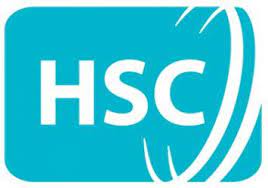Abuse & Assault advice
This is defined as protecting people’s health, wellbeing and human rights, enabling them to live free from harm, abuse, and neglect. It is fundamental to high-quality health and social care.
Adult at risk
This is a person aged 18 or over in need of care and support, or someone already receiving care and support and, as a result, is unable to protect himself/herself from harm, abuse or neglect.
Child or young person
This is any person, male or female, under the age of 18 in need of care and support, or someone already receiving care and support and, as a result, is unable to protect himself/herself from harm, abuse or neglect.
Sexual Assault Referral Centre based in AAH, Rowan Centre
The regional Sexual Assault Referral Centre for Northern Ireland based at Antrim Area Hospital has been accepting referrals since May 2013, providing services and support to over 360 people who have been sexually abused, assaulted or raped. The service is available 24/7, 365 days a year and anyone affected by sexual abuse can self-refer by calling 0800 389 4424 or report to the police.
The Rowan is a purpose-built centre which is safe and secure and has highly experienced staff who will work to ensure individuals affected by sexual abuse or violence receive the support or guidance required.
The Centre provides a co-ordinated package of care to promote recovery and wellbeing and, if requested by the service-user, works in collaboration with the Police Service of Northern Ireland to greatly enhance the investigative process. Further information on the service, including details on confidentiality, can be found on The Rowan website at www.therowan.net
Understanding domestic abuse
Did you know that every year in the UK almost two million people suffer from domestic abuse?
Abuse can take many forms and it can affect anyone from any background, regardless of their gender or sexuality. One in four women and one in six men will suffer domestic abuse at some time in their lives, and in some cases, this will result in hospitalisation or, sadly, it can even be fatal.
Having an understanding of what to look for and how to signpost to sources of help can prevent abuse from escalating.
The UK government’s definition of domestic violence is “any incident or pattern of incidents of controlling, coercive, threatening behaviour, violence or abuse between those aged 16 or over who are, or have been, intimate partners or family members regardless of gender or sexuality. The abuse can encompass, but is not limited to, psychological, physical, sexual, financial, emotional” abuse.
As noted above, domestic abuse can take different forms, including:
- Physical abuse
- Sexual abuse
- Financial abuse
- Coercive and controlling behaviour, and gaslighting/emotional abuse
- Digital/online abuse
- So-called ‘honour-based’ violence
- Forced marriage
- Female genital mutilation (FGM)
Recognising the signs
Domestic abuse victims can be very good at hiding or masking the signs of abuse. The abuser may even attend every appointment with them, making it difficult for you to ask questions and the victim to speak openly. But there are patterns of behaviour and signs you can be aware of, for example:
- Physical signs – unexplained bruising, falls, injuries inconsistent with the account of what happened, and changes in appearance
- Psychological signs – low self-esteem, isolation from friends and family, withdrawal from social settings, tearfulness, and signs of fear (e.g., silence) in front of some people
- Sexual abuse – torn or stained clothing, or unexpected pregnancy
- Financial abuse – missing personal possessions, rent arrears, missing money from accounts, or changes in living conditions
- Modern slavery – malnourishment, lack of identity documents, withdrawn and/or other physical signs
Signs of unhealthy behaviours in relationships
This could happen to anyone, and if you suspect that someone needs support, it’s important to know what you can do to support them. Some of the behaviours within a relationship that a friend may mention to you could include:
- They make threats and do things that make me feel frightened.
- They put me down just to make me feel bad when we’re alone or around friends.
- They make me do things that I don’t want to do without listening to me.
- They make me feel guilty if I don’t spend time with them.
- They don’t try to get on with my friends or family.
- They hit, slap or push me.
- They look through my phone, social media or web history.
- They want to know where I am all the time.
- They cheat on me or accuse me of cheating on them.
- They steal from me or make me buy them things.
- They make me have sex when I don’t want to.
Why do people stay in relationships when they’re experiencing abuse?
There are many different reasons why people stay in relationships when they’re being abused.
They might feel frightened to leave or worry that the person abusing them will try and stop them, and become even more violent. They might also rely on the abuser for practical or financial support or worry about losing their home and access to children.
However, it’s a criminal offence to abuse someone in their own home or anywhere else — whether they’re a partner, a family member or someone else. Whatever the abuser might say, physical and emotional violence like this is never the victim’s fault.
What to do if you’re concerned? If you believe there’s an immediate risk of harm to someone, or it’s an emergency, you should always call 999.
If you’re worried that a friend, neighbour or loved one is a victim of domestic abuse, you can call the National Domestic Abuse Helpline for free and confidential advice, 24 hours a day, on 0808 2000 247.
And here’s a link to the Women’s Aid local support services directory: https://www.womensaid.org.uk/womens-aid-directory/
Ask for ANI codeword
If you’re experiencing domestic abuse and need immediate help, ask for ANI (Action Needed Immediately) in participating pharmacies and Jobcentres (Jobs and Benefits Offices in Northern Ireland) and at our practice.
When you ask for ANI, you will be offered a private space, given a phone and asked if you need support from the police or other domestic abuse support services.
To find your nearest participating provider, search using the postcode checker on the ‘Ask for Ani’ page on the Enough website: https://enough.campaign.gov.uk/get-support/ask-for-ani
Bright Sky app
Bright Sky is a mobile app and website for anyone experiencing domestic abuse, or anyone who’s worried about someone else.
The app can be downloaded for free from the app stores. Only download the app if it’s safe for you to do so and if you’re sure your phone isn’t being monitored.
Remember, if you do suspect that a patient, colleague or friend is being abused, it’s vital to try and help and safeguard that individual. You may only have one chance to save someone’s life.

